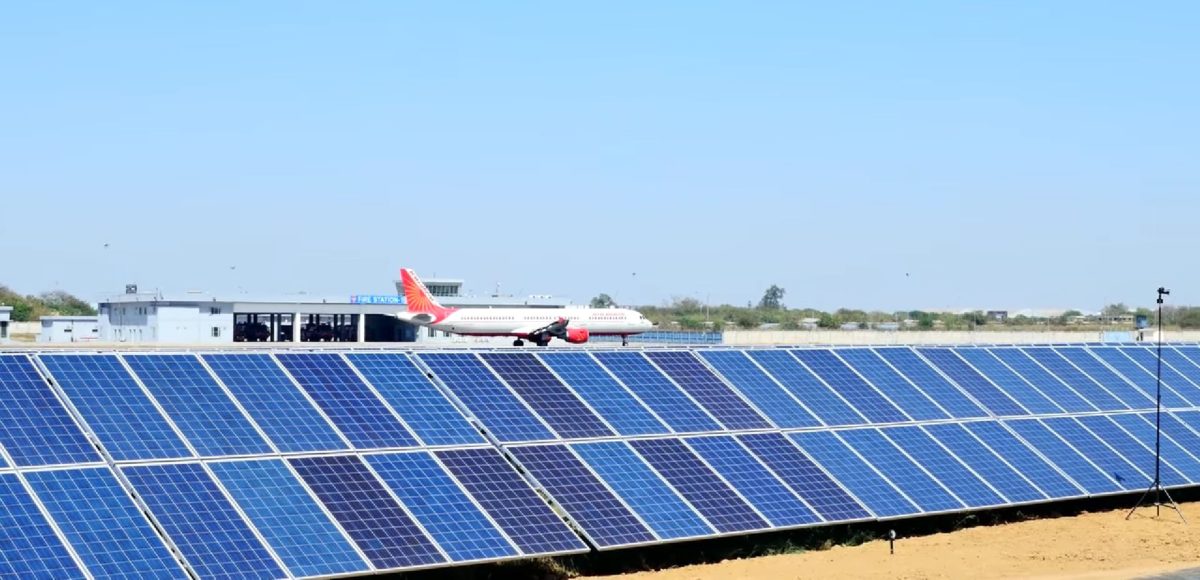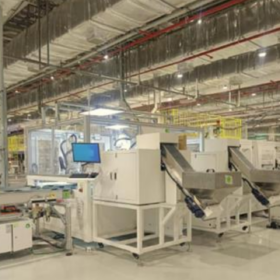The International Solar Alliance (ISA) and Airports Council International (ACI) have signed a memorandum of cooperation to increase solar deployment across airports globally. Through this cooperation, the ISA and ACI aim to make airports greener to help reduce airport emissions, improve air quality, and make them more sustainable.
ISA and ACI will work together to develop joint projects that promote solar at airports and make them more viable. ISA, with its international expertise, will support policy choices that accelerate solar development. ACI will bring in best practices for adoption by airports across the globe.
To strengthen the partnership, the signatories will explore collaborating with various partners, including the International Civil Aviation Organization (ICAO), on developing solar projects for airports.
Director General of ISA, Dr Ajay Mathur, said, “Our focus will be two-pronged: engage with ISA member countries to support establishing robust national and regional policies and frameworks. In addition, explore a joint publication of a guidance document of best practices for airport solarisation. We foresee this document as a comprehensive resource, sharing valuable insights and recommendations for the successful implementation of solar projects.”
Director General of ACI World, Luis Felipe de Oliveira, said, “The memorandum of cooperation with ISA will help ACI members improve and reduce their carbon footprint as well as dependency on fossil fuels. Airports are ideal locations for solar infrastructures due to their large, flat, and unobstructed surfaces, and this partnership will be key to supporting them in their energy transformation.”
“Additional assistance will be provided to Small Island Developing States and other developing countries so that they are able to leverage the rights tools and solutions for setting up effective solar projects. This collaboration is one more step forward in achieving our long-term carbon goal by 2050.”
The collaboration between the signatories encompasses a range of activities. Firstly, there is an emphasis on exchanging and sharing available and relevant information, including success stories, learnings, and outcomes from existing projects. This knowledge-sharing will serve as a valuable resource for all parties involved. Additionally, the signatories are committed to exchanging information on the aggregate demand for solar projects in identified airports, which enables a more informed approach to project planning.
Joint exploration and identification of pilot projects for solar installations are also key components of the collaboration. By working together, the signatories can assess the feasibility of setting up solar projects in identified airports and conducting joint preparations and assessments. This cooperative effort extends to supporting implementation by adopting appropriate business models based on best practices, relevant information, research, and experience.
This content is protected by copyright and may not be reused. If you want to cooperate with us and would like to reuse some of our content, please contact: editors@pv-magazine.com.









By submitting this form you agree to pv magazine using your data for the purposes of publishing your comment.
Your personal data will only be disclosed or otherwise transmitted to third parties for the purposes of spam filtering or if this is necessary for technical maintenance of the website. Any other transfer to third parties will not take place unless this is justified on the basis of applicable data protection regulations or if pv magazine is legally obliged to do so.
You may revoke this consent at any time with effect for the future, in which case your personal data will be deleted immediately. Otherwise, your data will be deleted if pv magazine has processed your request or the purpose of data storage is fulfilled.
Further information on data privacy can be found in our Data Protection Policy.